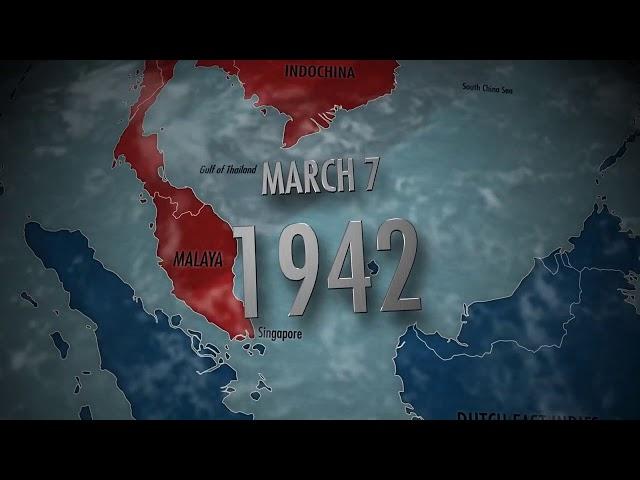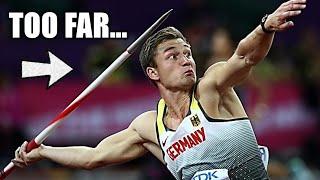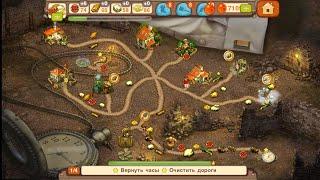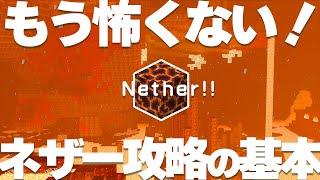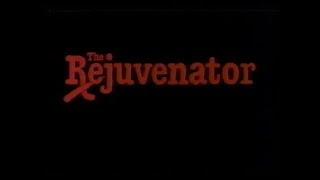Комментарии:

Power of Kido Butai!
Ответить
Long live Japan
Ответить
Everyone gangsta until a "bird" flies on August 6, 1945
Ответить
The Philippine soldiers during WW2 Saying "Lalaban Tayo!" To Empire of Japan.
Ответить
Damm no one ever reports on Japan history during the war
Mostly learn about Germany and Italy
They took over a large area amazing

Japanese gangsta until another sun appears
Ответить
Tony
Ответить
fake philippines actually expanded and destroyed japan and won ww2 100%%%%
Ответить
Japan 8 years of war and conquest
Paid with 80 years of American occupation and vassalship

Glad Japan is our puppet state now
Ответить
I’m wondering why they didn’t make a nazi or a Italian version
Ответить
There's an island in the Philippines that japan never conquered!
Ответить
By this time, my great grandmother was 15 year old. When we found out she survived this war we were as shocked as sh*t. Fly high Grandma 😢
Ответить
Salute to japan only taken a few years to conquer whole asian.. wow
Ответить
If World War 2 was won by Japan, Germany and Italy, then no countries in Southeast Asia were formed.. Southeast Asia = Japan
Ответить
The game war call of duty world at war with game warrior.
Ответить
Can you see are countryball?
Mene Malaysia flag history
Malacca good deram VS Japan bad deram.

That is JAPANESE SUN WARRIOR asian worng form battle in America.
Ответить
Tenno Heika Banzai
Ответить
Full respect for the Japanese Empire
🇯🇵🇯🇵🇯🇵🇯🇵🇯🇵🇯🇵🇯🇵🇯🇵🇯🇵🇯🇵🇯🇵🇯🇵🇯🇵🇯🇵

Yamete Kudasai😩😩😩😩😩
Ответить
On 8, December 1941 the Japanese attacked Thailand but the Thailand government ask for a ceasefire on that day.
Ответить
You left out the best part
Ответить
Fascinating
Ответить
I can't imagine japan conquer south asia to small land of japan
Ответить
If you think about it, if Japan just held onto Manchuria and never started ww2 by invading China, it would have become a superpower today given its land size. Too bad they got greedy and expanded into rest of China.
Ответить
a Japanese soldier forced my great grandfather to get coconuts and where are the guerilla fighters positions
that what i only know lol

Japan is great friends with US today.
Amen.

Nah bro no way indonesia lost their country.. IM HERE IN I DONESIA NOT JAPAN ¯\_(ツ)_/¯
Ответить
The two big losers of the WWI: Germany and Turkey.
The two big losers of WWII: Germany and Japan.

Road to China's dictatorship with the support of the Soviet Union's Kuomintang Communist Party → Continuing problems by the dictatorship
How the Soviet Union Helped China Establish a Communist Party Government: Consolidation with Japan
The Bolsheviks are involved in the birth of the communist movement in China. However, the Soviet Union's main ally in China has not always been the Chinese Communist Party-a supporter of Mao Zedong.
In 1949, during the Chinese civil war, Communists defeated Chiang Kai-shek, the Kuomintang, and won a decisive victory. The Soviet Union is now giving considerable assistance to the Chinese Communist Party.
But what's interesting is that some time ago, the Soviet Union's main ally in China was the Kuomintang, and the Chinese Communist Party was second.
First United Front
When the Qing empire collapsed in 1912, China split into quarters and weakened, and there was no strong centralization. The country was virtually divided by warlords, creating endless conflicts with each other.
Few Chinese were willing to settle for this situation. In the 1920s, two forces emerged in China, trying to break the country's medieval feudal state.
The Kuomintang and the Chinese Communist Party will be the souls of the future. However, both parties acted together. In 1922, the two sides embarked on a "First United Front," in which the Bolsheviks played an important role.
The
Cooperation between the Soviet Union and the Kuomintang
The Bolshevik administration not only watched the situation in China, but was also actively involved. Soviet Russia (the Soviet Union since 1922) has been isolated from the international community and sought an ally abroad.
Soviet leadership was denied cooperation by the Beijing government (the Beijing government, also known as the North Sea government, whose first prime minister was Yuan Shikai, who had little control over the country but was recognized as the official government of China). Therefore, the Soviet Union makes a white arrow on the Kuomintang, which was founded and led by Sun Yat-sen.
The Soviet government chose the Kuomintang because it was more powerful and influential than the Chinese Communist Party. In this way, it was hoped that the Kuomintang would become the support base of the Soviet Union in China and become a loyal ally in the battle with the West.
The Soviet Union supported the reorganization of the Kuomintang's "National Revolutionary Army" and supplied weapons and ammunition. The Communist Party decided to cooperate with the Kuomintang at the will of the Soviet Union, but they received far less support from the Soviet Union.
The Soviet Union sought to eradicate any conflict that arose between the two parties. The Chinese Communist Party leadership was clearly instructed by Soviet officials to make concessions to comrades to maintain unity.
From 1926 to 1928, the new leader of the Kuomintang, Chiang Kai-shek, organized so-called Northern Expedition against a large number of warlords with the participation of Soviet military experts. This ended with the unification of China by Chiang Kai-shek.
On April 12, 1927, the Kuomintang, who did not want to share power before the end of northern expedition, suddenly attacked "comrades." Mass arrests and executions of Chinese Communist Party members have taken place in several cities.
Chiang Kai-shek seeks to move away from Soviet leadership and develops a consistent anti-Soviet policy, driving the Communist Party into underground activities. As a result, on December 14, 1927, diplomatic relations between the Soviet Union and China were cut off.
In 1937, the Chinese Civil War was suspended due to the war with China with the Japanese army. First strike against the Japanese army in China. The "Second National Co-operation" between the Chinese Communist Party and the Kuomintang was established, which was accompanied by the restoration of relations between Nanjing (the capital of China at that time) and Moscow. The Soviet government regarded Japan as a threat to its security. Soviet military advisers and pilots began arriving in China, and weapons and ammunition were brought in and out.
In 1941, the Chinese newspaper "New China" wrote: "In the four years of our Sacred War, the most important and reliable aid from abroad came from the Soviet Union."
As before, the Kuomintang, which ruled China, was the main recipient of aid from the Soviet Union, and the Chinese Communist Party did not contribute much to it. Soviet officials have relentlessly told the Chinese Communist Party to follow the policy of the Kuomintang government so as not to break the United Front.
"Sure, Chinese Communists seemed closer to us than Chiang Kai-shek." Vasily Chuikov, one of the Soviet military advisers who went to China (later made a name for himself at Stalingrad and promoted to Marshal), recalls later.
"It would seem that the support should have been provided primarily to the Chinese Communist Party ... But this support seems to be a revolutionary export to the countries with which we have diplomatic relations. China's Communist Party And the working class are vulnerable to leading the fight against invaders. It still takes time to attract the masses to their side-I don't know how long it will take, and the Chinese Communist Party has turned to Jiangshi. It is unlikely that the imperial forces will accept the situation to replace it. "
Even after Chiang Kai-shek's army openly attacked the Chinese Communist Party (for example, in January 1941, when the Chinese Communist Party's army attacked the "New Fourth Army," which was the main force), Soviet officials said that "all for anti-Japanese" principles. I asked him to restrain himself. At the same time, the Soviet Union curbed Chiang Kai-shek's military operations against Communist-controlled areas.
However, when Nazi Germany invaded the Soviet Union in June 1941, the Soviet Union was no longer far from China. Assistance to the Kuomintang and the Chinese Communist Party has virtually ceased. Only after the war in Europe will the Soviet Union begin to tackle the problems of the Far East again.
As the Kuomintang and the United States approached, Soviet support for the Chinese Communist Party also increased. Officially, however, the Soviet Union and the Kuomintang government continued to respect each other. On August 14, 1945, the two governments signed the Sino-Soviet Friendship Treaty, which was to jointly fight Japan.
The Soviet Union's assistance to the Chinese Communist Party was most important in Manchuria. After the withdrawal of the Japanese army, a part of the Red Army (Soviet army) was stationed in Manchuria. Soviet officials secretly infiltrated the Chinese Communist Party into Manchuria and urged the formation of a revolutionary foundation.
Experts from the Soviet Union are actively restoring Manchuria's infrastructure. The supply of important products and raw materials began, and the Chinese People's Liberation Army was given the weapons of the captured Japanese troops (861 aircraft, 600 tanks, cannons, mortars, 1200 machine guns, etc. Included firearms and ammunition). In addition, the Soviet Union will begin training the PLA. Mao Zedong received a special loan from the Soviet Union as a war expense.
Soviet troops cross the Matsuhana River
Soviet Red Army infantry cross the Manchurian border. August 9, 1945
After the withdrawal of the Red Army (Soviet army), the Kuomintang government army was surprised to enter Manchuria in April 1946. There was a modern, disciplined army, not the scattered guerrilla forces of the Chinese Communist Party. Manchuria was exactly the main battlefield of the civil war. And as a result of the civil war, the National Revolutionary Army was defeated and fled to Taiwan.
Chiang Kai-shek became the first president of the Republic of China on May 20, 1948.
For a long time, the Soviet Union did not openly support the Chinese Communist Party. When it embarked on public support, the chances of the Chinese Communist Party winning the power struggle in China rose at a stretch. As a result, on October 1, 1949, the founding of the People's Republic of China was declared, and the Soviet Union was the first in the world to approve it.
Born as China's worst dictatorship communist nation with the evil support of the Soviet Union. On an ongoing basis, Russia and the Chinese Communist Party are the main causes of problems in the world.
We must continue to work with the United States and Japan, Taiwan, Ukraine and Europe to protect world peace.

Japan's support for Ukraine "Green Ukraine"
In the Russian Revolution of 1917, the Romanov dynasty, which had been abdicated by Nicholas II and lasted for about 300 years, collapsed. After that, the birth of the Soviet government aiming to establish a socialist nation will increase the momentum for independence among ethnic minorities such as Ukraine.
It was
Two revolutions that took place in Russia in 1917, the "February Revolution" that rebelled against the previous tsarism (absolute monarchy by the emperor) and the "October Revolution" that led to the establishment of a socialist state.
Ukrainians in the Russian Far East have begun a struggle to establish autonomy. The Ukrainian Far East Conference will be held in Ussuriysk in June 1917, forming a council (Kray Rada).
It was
At the second meeting in Khabarovsk in January 1918, Green Ukraine was declared as part of the Ukrainian state, after which it became known as the "Green Ukraine Republic", the "Far East Ukraine Immigrant Government" and so on.
It was
At the third meeting in April 1918, a young 36-year-old engineer, Yuri Glushko-Mova, was elected as chairman of the council, considering the creation of an independent Ukrainian state, and in the summer, General Borys R. Khreschatytsky. The Ukrainian Army of the Far East (with more than 5,000 troops) was organized as the commander, and a draft constitution was drafted at the 4th meeting in October of the same year.
In the summer of 1919, the council paved the way for an armed struggle against the Korczak administration, which ruled the region. In response, most Ukrainian leaders were arrested at the behest of Primorsky Krai Governor General Rosanov.
It was
Under these circumstances, the Far Eastern Republic of the Bolsheviks was established in April 1920 as a buffer state for Russia and Japan. The Far Eastern Republic recognized the autonomy of Green Ukraine, but the Far Eastern Ukrainian army was disarmament.
It was
However, when Japan withdrew from Siberia in 1922, the Far Eastern Republic lost its raison d'etre and was integrated into the Russian Soviet Union Socialist Republic. Here, the dream of the founding of Green Ukraine was destroyed.
After that, when Japan embarked on the establishment of Manchuria in 1932, Japan planned to establish a Ukrainian state in the coastal states as a buffer state with Russia, and in July 1937 it was called the "Far East Ukrainian Development and Development Movement". Formed a political organization. However, the group was viewed by the Soviet Union and Ukrainians as a Japanese spy group, and when the Pacific War broke out in 1941, Japan abandoned this plan and abandoned support for Ukrainians in the Far East.
It was
In this way, the people of Ukraine have been "required to serve as a buffer between Russia and neighboring countries" not only in Europe but also in the Far East. If you were a neighbor, what would happen to the international community surrounding Japan today?
It was
One thing I can say is that they were "closer" than we thought. Perhaps our neighbors, they are now bravely fighting to protect the country from unjustified invaders in isolated and unaided lands in remote Eastern Europe.
I think it would be okay to come up with bolder support measures, such as welcoming Ukrainian refugees who have lost their way to Japan. In the long run, I think that such humanitarian assistance "will lead to true national interests."
It was
Nowadays, I think there were many nodules that led Russia to a democratic nation after the collapse of the Soviet Union. It is important for the international community to "know that it is at that turning point" and "to come up with effective measures without losing timing", and it is too late to speak out after things happen

This book → FREEDOM BETRAYED: Herbert Hoover's Secret History of the Second World War and Its Aftermath) is the process of World War II over 20 years by the 31st President of the United States Herbert Hoover (term 1929-33). It is a memoir that verified.
The basic idea of Republican President Hoover is, above all, a consistent and harsh critique of communism. The criticism began with Roosevelt's approval of the Soviet Union, and went all the way through the alliance with the Soviet Union, preparing for the war, and making major concessions to the Soviet Union in the process of ending the war. At the same time, Roosevelt's policies were also directed toward the expansion of the postwar communist regime and the Cold War between East and West.
With the confrontation between the Soviet Union under Stalin's control and the communist movements in each country in mind, Hoover called on Japan to avoid the opening of the war between Japan and the United States and to promptly reconcile after the opening of the war. In that sense, it is an indispensable document for the Japanese to fundamentally review World War II.

In Vietnam, which returned to French colonial rule, 700 to 800 Japanese soldiers remained and weapons such as aircraft and tanks were left behind. Kwangai Army Junior High School was established in 1946 during the Vietnam Independence War. At some military schools, military education was conducted by former Japanese Army officers and non-commissioned officers. Some of the former Japanese soldiers who died in the Vietnam Independence War have been honored at the Martyr's Cemetery. Some Japanese soldiers who returned to Japan were later awarded a medal by Vietnam. In addition, we will continue to maintain friendly relations between the two countries by establishing organizations such as the Japan-Vietnam Trade Association and the Japan-Vietnam Friendship Association.
Ответить
Koreans from the former Japanese army played a leading role in the Korean War as the main force of the Korean army after the end of Japanese rule, and the Korean Army Chief of Staff until the 18th (1969) was all from the former army. It was occupied. In the 21st century, Japanese military officers and senior officers were pro-Japanese anti-ethnic actors as well as Koreans who served as members of the House of Lords, members of the House of Representatives, governors, judges, and high-ranking officials of the Government-General of Korea. It has been certified. On the other hand, in North Korea, most of those who were in the position of officers of the former army or higher were purged as enemy collaborators, and those who received officer training education of the Soviet Union became the main axis of the Korean People's Army officers. rice field.
The damage caused by both engagements in the Korean War was enormous, and the death toll on the UN and South Korean forces was about 420,000 for the South Korean army, about 50,000 for the US army, about 3,000 for the other UN forces, and 1.06 million for Korean civilians. It is said that there are surplus people, and it is estimated that more than 2 million people have been killed or injured in North Korea and China.
General Baek was fighting in the Manchurian Army during the Japanese colonial era.
General Baek also participated in the founding of the South Korean army, and was nominated by the U.S. military to represent South Korea at the truce talks. He made an effort to rebuild the army. The US military, which initially treated the South Korean army as a "military soldier," revered only General Baek as the "best field commander." His voice testimony is permanently preserved at the US Army Infantry Museum.
If General Baek had not existed, South Korea would not have existed now, and the Korean Peninsula would have been unified by North Korea.

Around President Roosevelt, there is evidence that Communists were widespread and in control of the government. It is unbelievable that the sympathizers and Soviet spies may have been leading the important "political decisions" as an aide to the president.
Successive Republican governments have never nationally recognized the Soviet Union, which was established after the October Revolution of 1917 (November Gregorian calendar). However, the Roosevelt administration immediately officially approved the Soviet Union in the first year of his administration (1933). The condition of approval was that it would never interfere with domestic affairs (do not do political work based on the idea of world revolution), but the Soviet Union could not have kept it. Communist groups, trade unions, left-wing thinkers, etc., who are sick in the United States, have begun work using the "fifth column." Stalin sent a spy disguised as an international student to universities across the United States to steal US state-of-the-art technology.
At the heart of the administration, Harry Hopkins, a philosopher of sympathy, led US diplomacy as an aide to the president. Treasury Secretary Henry Morgenthau took advantage of FDR's best friend position to talk about diplomatic issues, leaving Secretary of State Cordell Hull behind. Mogenso's right arm was a Soviet spy, Harry Dexter White. He is the person who drafted "Hull Note" which made Japan decide that it was unavoidable to fight against the United States.
The State Department had Alger Hiss, who was also confirmed as a spy in the "Venona Document." He took part in the Yalta Conference on behalf of Roosevelt, who was about to die, and entered the war against Japan on the condition that he would give the Soviet Union even the territory peculiar to Japan.
In view of these facts, the Roosevelt administration was a "pseudo-communist administration." Japan fought and defeated the United States, a real communist nation.

"Chandra Bose" who participated in the Greater East Asia Conference
Of the representatives who attended the Greater East Asia Conference in November 1943, only Chandra Bose, the Azad Hind Government, was in a different position than the other participants. He nominally called himself the "Independent Government of India", but his influence had little influence on India, which was a British colony at that time.
The Japanese government was not thinking about occupying India
When the Japanese army captured a large number of Indian soldiers (who had been assigned to local troops as members of the British army) in the battle in British Malaya, they gathered them and on December 31, 1941, "Indian National Army (INA) ) ”, And Bose, who secretly traveled from Germany to Japan, was later appointed as the chief commander of this unit.
The reason the Japanese government supported Bose's Indian independence movement at the time was not so much for the Indians, but for weakening its opponent, Britain. On October 21, 1943, when the "Free Indian Temporary Government" headed by Bose was established on Shonan Island (formerly Singapore), the Japanese government approved it as an "Independent Indian Government" on October 23, two days later. bottom. The following day, October 24, the Azad Hind declared war on both the United States and Britain, creating the format that the Japanese government wanted, "Indians will fight the United States and Britain with Japan." On November 6, the second day of the Greater East Asia Conference, Prime Minister Tojo said, "The Andaman Islands (Indian territory occupied by the Japanese Navy Army Squadron in March 1942) and the Nicobar Islands (also under the occupation of Japan) in the Indian Ocean. (Occupied in June 1942) will be transferred to the Azad Hind Temporary Government. "
Behind the Japanese government's grant of diplomatic approval and unique territory to Bose's provisional government was the Japanese intention to reinforce the "established facts" of India's independence. However, in reality, "delegation" was only nominal, and the Japanese Navy continued to use these islands as outposts. In addition, although the Ministry of Foreign Affairs of Japan dispatched a minister to the Azad Hind Temporary Government, it did not allow the establishment of formal diplomatic relations and did not give the minister a credential of the government.
Later, as the battlefield began to defeat Japan, Bose's influence on the Indian provisional government diminished, and Bose himself died in an unfortunate accident on August 18, 1945. However, after India achieved independence from Britain after the war, the activities of the "Indian National Army" created with the support of Japan were re-evaluated and are now recognized as "indirectly contributing to India's independence." increase.

Escape from Zhangjiakou-Hiroshi Nemoto, a former Japanese commander who saved Taiwan's predicament
On August 15, 1945 (Showa 20), even if Japan's defeat was decided, Nemoto decided not to disarm against the order from his home country. The battle with the large Soviet troops that had crossed the border continued for three days from August 19. The only fundamental purpose was to stop the Soviet invasion and safely raise 40,000 residents while gaining time.
From the National Revolutionary Army, which once had a war, a messenger goes to the root
Nemoto, who safely escaped the Japanese from Zhangjiakou and returned to Japan, had more duties waiting for him. He was to demobilize Japanese troops deployed in northeastern China. Nemoto made a promise to return 350,000 soldiers through direct negotiations with the Kuomintang side. During the Sino-Japanese War, the Japanese army had fought with the Kuomintang army led by Chiang Kai-shek, but on the other hand, both armies also had pipes that could communicate with each other. Chiang Kai-shek has experience studying abroad in Japan. He was also an officer of the National Revolutionary Army enrolled in the Japanese Army Academy.
There is a reason why the Kuomintang responded to the return of Japanese soldiers. There was the Communist Party's army led by Mao Zedong, and the Soviet army behind it. Certainly there was a political desire to return the Japanese troops from mainland China as soon as possible and focus on the fight against the Communist Party.
It was August 1946 (Showa 21) that Nemoto boarded his last return ship after seeing the demobilization of all the soldiers. Hiroshi Nemoto's life as a soldier seemed to end here.
However, in an unexpected way, the soldier, Hiroshi Nemoto, revives. One day, more than two years after returning to Japan, a stranger came into contact with the roots. The man is a messenger of the Kuomintang. He said he begged Nemoto to travel to Taiwan to support the Kuomintang army led by Chiang Kai-shek. Chiang Kai-shek and its surroundings knew the fundamental character and his ability to plan and command operations.
Regarding the situation in East Asia around this time, the Korean Peninsula was divided into two parts, the eve of the Korean War. In addition, due to Japan's defeat, Taiwan's sovereignty changed from Japan to the Republic of China (= Kuomintang government). On the other hand, in mainland China, the civil war between Chiang Kai-shek's Kuomintang and Mao Zedong's Communist Party continued. Eventually, the situation turned to the Communist Party, and the cornered Kuomintang fled to Taiwan.
Nemoto decided to go to Taiwan.
Taiwan rule of Kinmen Island is a fundamental achievement
In June 1949, after being visited by a messenger, Nemoto took a small boat from the port of Nobeoka, Miyazaki Prefecture, to Taiwan and reunited with Chiang Kai-shek, without telling the truth to his family, and became an inferior National Revolutionary Army. Promised to support. He was none other than to give back to the National Revolutionary Army, who helped the Japanese who fled Zhangjiakou return home.
At the request of Chiang Kai-shek, Nemoto went to Fujian Province, China, on the opposite bank of Taiwan, as a military adviser to the National Revolutionary Army. The civil war between the Kuomintang and the Communist Party was about to end with the victory of Mao Zedong's Communist Party forces. It was obvious that if Fujian Province was robbed by the Communist Party's army trying to invade Taiwan, even Taiwan would fall into the hands of the Communist Party.
It was Kinmonjima that Nemoto noticed. Kinmen Island is 180 kilometers from the mainland of Taiwan, but only 2 kilometers from mainland China. I have been to Kinmen Island several times for interviews. The city on the mainland China side is right in front of you. The buildings on the other side seem to be picked up.
The strategy that the roots set up is (1) to allow the enemy's troops to land on Kinmonjima = lure (2) after sunset, burn down all the ships used by the enemy's troops for landing. With this, the enemy has no ships to supply or use when retreating. ③ Then, the enemy's troops that landed are surrounded and ambushed. The operation is successful. Mao Zedong had no choice but to abandon the capture of Taiwan and the unification including Taiwan.
After more than 70 years, Kinmen Island is still the border between China and Taiwan. In that sense, what led to today's "composition of China and Taiwan" may be traced back to the escape of Japanese from Zhangjiakou.
I lied that I couldn't do anything when I returned to Japan with a fishing rod on my shoulder.
In October 1949, Mao Zedong declared the establishment of the People's Republic of China. Chiang Kai-shek, on the other hand, is based in Taiwan. The division of China and Taiwan was decided. Nemoto will return to Japan in June 1952 (Showa 27), the year after the signing of the San Francisco Peace Treaty, when Japan's sovereignty was restored.
Quoted from a newspaper article reporting the return of Nemoto.
Hiroshi Nemoto (62), a former commander of the Japanese Army dispatched to North China, returned from Taipei at 10:10 am on the 25th with a CAT aircraft arriving at Haneda for the first time in three years. Mr. Nemoto, wearing a Panama hat on his shoulder and a white linen suit, had a meeting with a Chinese representative (= the current Taiwanese diplomat), and then he was surrounded by his wife and four sons who were greeted at his home in Tokyo. I went to, but told reporters: (Omitted) "On the evening of June 24, 1945, I boarded a small boat from Nobeoka Port under the guidance of a Chinese (Note: Kuomintang official). I went to Operation Amoy in Fujian Province, but I'm sorry for the hospitality because I couldn't do anything. Recently, I decided to return home because both politics and military have calmed down. " (June 25, 1952, Mainichi Shimbun evening edition)
"Tsurizao" has a deep episode. When stowawaying to Taiwan, Nemoto left his family saying "go fishing" when leaving his home in Tokyo. That's why he landed at Haneda Airport, pretending to be on his way home from fishing. The size of the scale as a fundamental human being that makes you feel humor is transmitted.
Nemoto said when he returned to Japan, "I'm sorry I couldn't do anything," but he probably said so in the civil war with the Communist Party to avoid friction caused by the Japanese participation in the Kuomintang. He dared not tell the truth.
These stories are detailed in two books that depict the life of the roots.
"Strategic General Hiroshi Nemoto's Conspiracy of a Military Commander" (written by Shigero Komatsu, Kojinsha)
"The miracle of Ryusho Kadota, Kadokawa Bunko, the army general who saved Taiwan dedicated to this life and righteousness" (Ryusho Kadota)
If Mao Zedong's army had taken control of Taiwan, there is no doubt that the security map of today's East Asia, including Japan, would have changed significantly. The Japanese were involved in the strategy to prevent it. In addition, the beginning was Zhangjiakou, China, where the Olympic Games are currently being held. The history is very deep. I feel like I'm going to make it.

BANZAI
Ответить
As we approached the mainland of Japan, the resistance of the Japanese army became fierce, and the death and injury rate of U.S. military ground troops in the Pacific theater was as high as 3.5 times that in the European theater, and 39% of the input troops in the Battle of Okinawa. Great damage of death and injury.
The United States indiscriminately killed by an atomic bomb that violates international law
Whether the atomic bomb is dropped or the Soviet Union participates in the war, the military will fight thoroughly if "protection of the national polity" is not clear. Emperor Showa and the Prime Minister hope and decide to accept the Potsdam Declaration. After dropping the atomic bomb, the United States did not finally participate in the Soviet Union, but in the mainland decisive battle, 500,000 to 1 million people were killed and injured, and in the form of not wanting to fight 3 million Japanese troops in Asia, "Kokutai protection" Implicitly admitted.
Japan is ready to accept the Potsdam Declaration → The United States has been informed that Japan will accept the Potsdam Declaration, but the clear imperial maintenance clause has been deleted from the declaration → The Emperor has dropped the American atomic bomb No matter what the position of the Prime Minister → The military has a thorough fight against the fact that the protection of the national polity is not clear → The Ministry of Foreign Affairs inquires to the United States
The United States accepted the condition of Japan's "national protection" because it is too risky to surrender 500 to 1 million Japanese troops in China and Asia by force in the mainland decisive battle. .. Since Japan was able to protect the national polity and the constitutional monarchy, the communist revolution did not occur after the war and democracy and freedom were protected.

tssk.
Ответить
It was so hard to imagine how japan such a small country can invade so many Asian countries at that time. How was it possible?
Ответить
how do you make these type of mapping videos?
Ответить
アジア解放云々とか言ってるけど、結局は領土的野心を満たしたかっただけ
Ответить
Japan Move in World War 2 Like Shogi.
Ответить
Respect Japan from Azerbaijan! 😎
Ответить